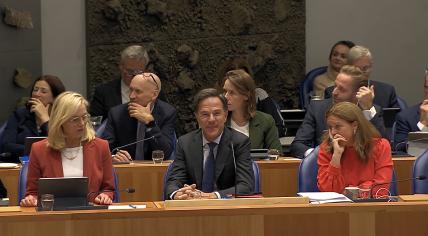In a decisive move to counter digital espionage, the newly appointed Dutch Prime Minister, Dick Schoof, has imposed a ban on cell phones and other mobile devices during weekly Cabinet meetings.
The decision is aimed at reducing the risk of sensitive information being compromised through electronic surveillance.
Dick Schoof, who assumed office in July, brings with him extensive experience from his previous role as the head of the national intelligence agency.
Highlighting the potential threats posed by modern technology, Schoof explained that mobile devices, including smartphones and iPads, could serve as “little microphones,” making them prime tools for espionage.
This policy marks a departure from the practices of Schoof’s predecessor, Mark Rutte, who did not enforce such a ban during his time in office.
Schoof’s technocratic approach, influenced by his intelligence background, reflects a heightened awareness of the risks posed by digital espionage in today’s interconnected world.
The ban has been met with unanimous support from Cabinet members, who immediately agreed to the measure.
Their swift approval shows the gravity of the espionage threat, which has been increasingly underscored by security officials.
Erik Akerboom, the current chief of the General Intelligence and Security Service (AIVD), said the ongoing espionage activities are targeted at the Netherlands.
Countries like China have been particularly active in attempting to infiltrate the nation’s high-tech sector, according to Akerboom.
Looking ahead, Schoof’s government is preparing to unveil a comprehensive policy blueprint next month, aimed at further strengthening the country’s defenses against espionage and other security threats. This upcoming policy is expected to provide detailed guidelines on how the government intends to safeguard its sensitive operations from external threats.



